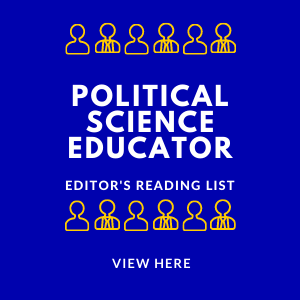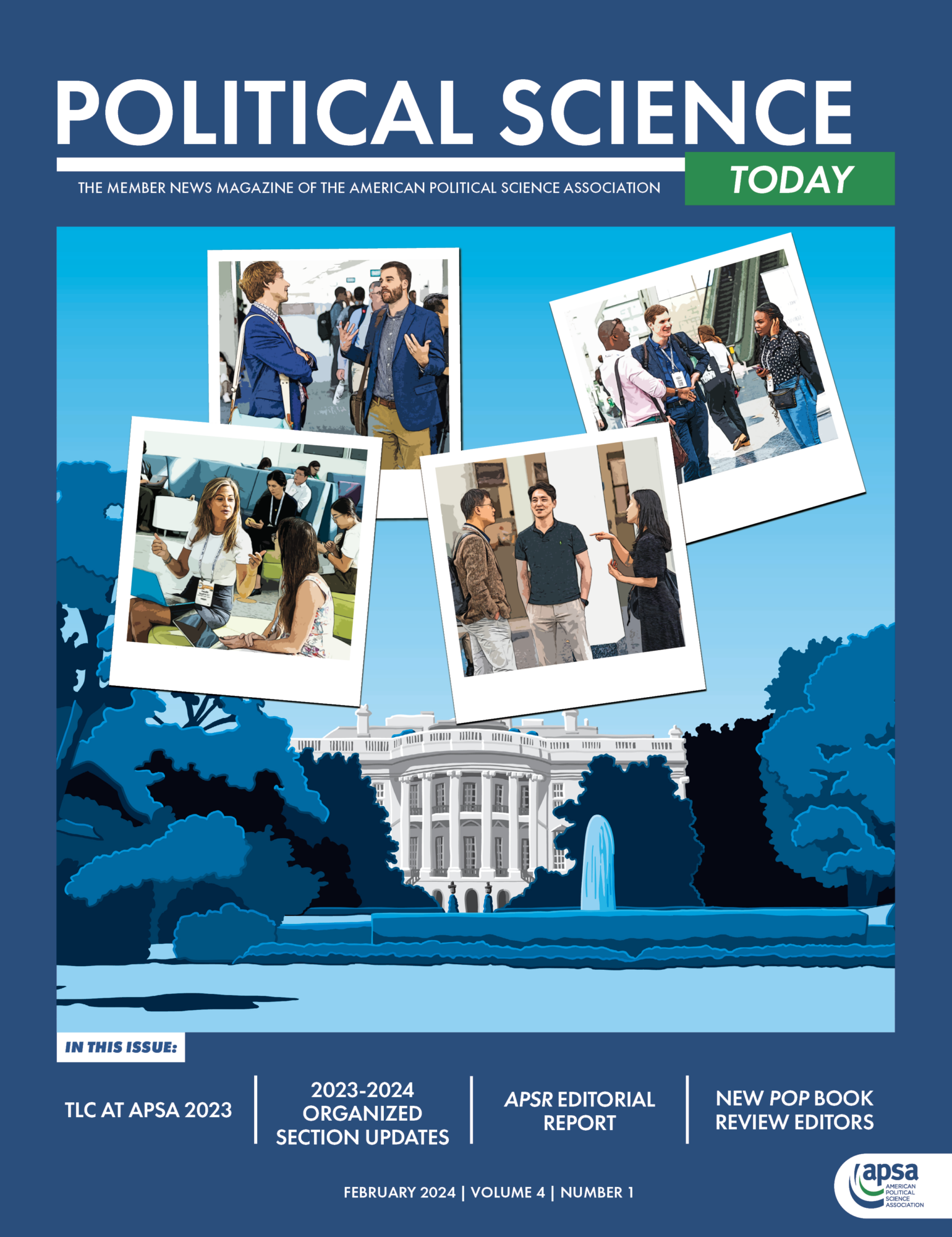Katherine M. Robiadek, Ph.D. Candidate, Department of Political Science, University of Wisconsin-Madison,
This essay originally appeared in the Political Science Educator’s Summer 2018 issue.
Overview of the UW-Madison Leadership Framework
When thinking about leadership in a democracy, it is often in conjunction with elected officials or office holders. However, in general, citizens in a democracy are expected to act as leaders in different ways throughout their communities, regardless of office or title.
This insight is reflected in the University of Wisconsin-Madison’s (UW-Madison) Leadership Framework (leadership.wisc.edu). The Leadership Framework provides a shared vision and language for leadership stemming from a campus initiative to identify and coordinate leadership initiatives and opportunities. Drawing on the university’s tradition of “fearless sifting and winnowing” that is at the heart of learning, it was developed over time with input from faculty, staff, and students from across the university in light of leadership theory, research, and practice. The schema articulates ways of engaging in acts of leadership that result in positive changes to beliefs, values, and behaviors in individuals and communities. Visualized as a matrix, the Leadership Framework focuses on a set of three institutional values and seven

leadership competencies that intersect to produce specific, identifiable/measurable, and meaningful outcomes (i.e., knowledge and skills). These values, competencies, and outcomes are all guided by a set of three main leadership principles. The first principle is that context matters, and each situation requires unique engagement. Secondly, an act of leadership is one that contributes to positive change. And, third, leadership is an action-oriented endeavor that is not based on position or level of authority.
This third principle of the Leadership Framework resonates most immediately with a democratic ideal of citizenship that prizes self-rule and political efficacy even outside formal offices and governing institutions. This is the democratic ideal that all citizens can and should be leaders.
So, when given the opportunity to design and deliver a political theory course on “literature and politics” for the UW-Madison Department of Political Science, it provided a chance to highlight the role of leadership in a democracy using the campus Leadership Framework. The question became how to effectively include leadership in course goals, activities, and assessments for significant learning. As detailed in what follows here, to answer this question I consulted widely on the topic with colleagues from across campus, and at other universities, before the semester started. Then, as the semester progressed, formative assessments about course activities were intentionally implemented throughout. After the semester, I then found ways to gather expert reviews in order to reflect on course design and delivery for updates to the next iteration.
Thinking about Democratic Leadership in an Undergraduate Political Theory Course
Getting the ball rolling on backward design for the course entailed reaching-out to the APSA organized section on Politics, Literature, and Film prior to the semester for sample syllabi. This was followed by meeting with colleagues from various campus units for advice both on best practices for specific elements of the course as well as on how to describe them effectively in the syllabus. Feedback gained from these consultations included: how to design writing activities to maximize reflection (Writing Center); how to facilitate discussion to ensure the greatest level of meaningful student participation (The Discussion Project in the School of Education & The Center for Ethics and Education); how to weigh considerations on the use of collaborative online platforms to meet learning goals (Information Technology); and how to effectively teach individual skills in observation (Chazen Museum of Art and, beyond campus, the Gregory Allicar Museum of Art at Colorado State University). All of this feedback was useful in the design of the course, as were resources from—as well as repeated consultations with—the UW-Madison Center for Leadership and Involvement (CfLI), which is one of the primary campus units supporting the Leadership Framework and related Leadership Certificate program for students (https://cfli.wisc.edu/leadership-certificate/).
These discussions led to including intentional examination of leadership—especially principles of democratic leadership—during the course in more than one way. Namely, the formulation of some of the course goals as well as various writing, discussion, and assessment activities as directly informed by the Leadership Framework.
For example, at times students were asked to write responses to prompts about leadership as part of their weekly writing logs on the course literature. Further, at several points in the semester, they were also asked to discuss the leadership of various characters from the literary works they were reading as compared to the Leadership Framework. On one occasion, while reading Machiavelli’s advice manual for early modern political rulers—The Prince—, students were prompted to explain the main point of each chapter in their writing logs. In class, after a lecture on the historical and rhetorical context of the text, students were then asked to compare their written log responses distilling Machiavelli’s political leadership principles to each other as well as to the Leadership Framework. In the minute-reflections turned in as formative assessment at the end of that meeting, many students found the activity to be highly engaging. One student specified they found it interesting “that we used a relevant example today in class that made us think critically about The Prince and made us apply the reading to real life.”
In another vein, an example of intentionally including leadership in assessment for the course pertains to the final essay exam. One of the questions was formulated to allow students to reflect on their own aspirations as democratic leaders. Students were provided the Leadership Framework matrix to use when answering the following question in the form of a character sketch: If a political theorist today were to write a novel including you as a character in the role of a democratically elected U.S. senator, how would your character map on to the UW-Madison Leadership Framework? Apart from making for fun reading as I graded, several students let me know they actually enjoyed reflecting on their own values while thinking creatively about their responses.
The leadership theme even extended to making regular class announcements about other leadership development opportunities on campus, such as a leadership open house to meet more student leaders while learning about various relevant programs. At one point, these class announcements took the form of a guest presentation from Center for Leadership and Involvement staff on the Leadership Certificate program. This made sense given that following CfLI’s review of its design, the course was determined eligible to fulfill the coursework requirement toward Certificate completion. Nearly half the enrolled students in the course declared interest in completing the other requirements for the Certificate going forward and, as of today, a handful of students have begun the program.
Hopefully, I will be able to instruct this course again at UW-Madison. The next step to prepare for such an eventuality is to reflect on possible updates to the syllabus, to the course activities, and to various forms of assessment in light of student evaluations of the course and peer evaluations of teaching from graduate student as well as faculty observers. This also includes debriefing about the experience as instructor with experts from UW-Madison and beyond (e.g., most recently with staff at Valparaiso’s Center for Civic Reflection), especially those who have infused their own courses with intentional learning about principles of democratic leadership. To that end, it would great to hear from other scholars who have had such an experience or any suggestions and resources for going forward.
Political Science Educator: Editor’s Reading List presents select PSE articles from the previous 15 years. APSA Educate is please to announce it will feature all future Political Science Educator‘s issues.





